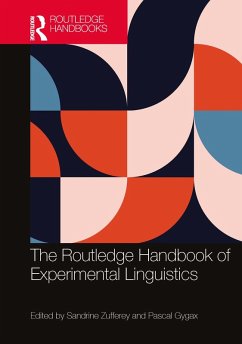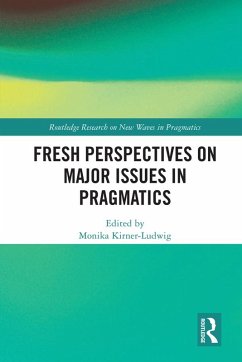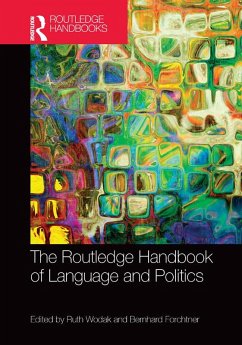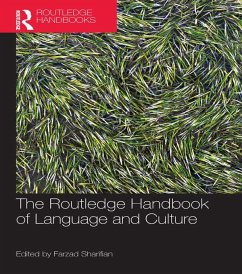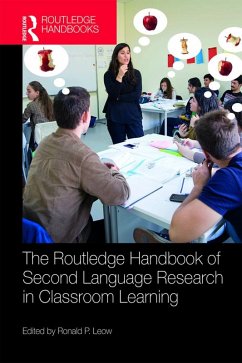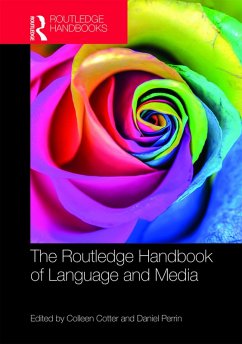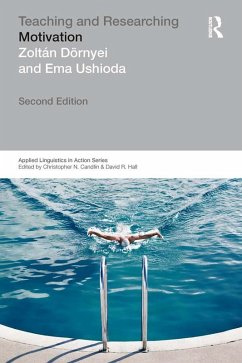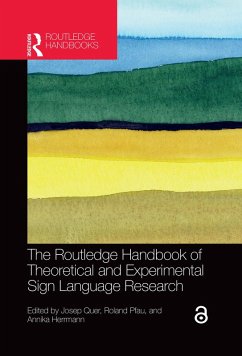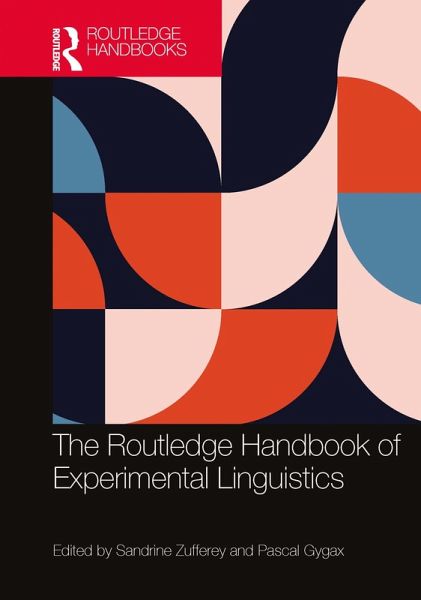
The Routledge Handbook of Experimental Linguistics (eBook, PDF)
Versandkostenfrei!
Sofort per Download lieferbar
47,95 €
inkl. MwSt.
Weitere Ausgaben:

PAYBACK Punkte
24 °P sammeln!
The Routledge Handbook of Experimental Linguistics provides an up-to-date and accessible overview of various ways in which experiments are used across all domains of linguistics and surveys the range of state-of-the-art methods that can be applied to analyse the language of populations with a wide range of linguistic profiles.Each chapter provides a step-by-step introduction to theoretical and methodological challenges and critically presents a wide range of studies in various domains of experimental linguistics.This handbook: Provides a unified perspective on the data, methods and findings st...
The Routledge Handbook of Experimental Linguistics provides an up-to-date and accessible overview of various ways in which experiments are used across all domains of linguistics and surveys the range of state-of-the-art methods that can be applied to analyse the language of populations with a wide range of linguistic profiles.
Each chapter provides a step-by-step introduction to theoretical and methodological challenges and critically presents a wide range of studies in various domains of experimental linguistics.
This handbook:
Providing readers with a wealth of theoretical and practical information in order to guide them in designing methodologically sound linguistic experiments, this handbook is essential reading for scholars and students researching in all areas of linguistics.
Each chapter provides a step-by-step introduction to theoretical and methodological challenges and critically presents a wide range of studies in various domains of experimental linguistics.
This handbook:
- Provides a unified perspective on the data, methods and findings stemming from all experimental research in linguistics
- Covers many different subfields of linguistics, including argumentation theory, discourse studies and typology
- Provides an introduction to classical as well as new methods to conduct experiments such as eye tracking and brain imaging
- Features a range of internationally renowned academics
- Shows how experimental research can be used to study populations with various linguistic profiles, including young children, people with linguistic impairments, older adults, language learners and bilingual speakers
Providing readers with a wealth of theoretical and practical information in order to guide them in designing methodologically sound linguistic experiments, this handbook is essential reading for scholars and students researching in all areas of linguistics.
Dieser Download kann aus rechtlichen Gründen nur mit Rechnungsadresse in A, B, BG, CY, CZ, D, DK, EW, E, FIN, F, GR, HR, H, IRL, I, LT, L, LR, M, NL, PL, P, R, S, SLO, SK ausgeliefert werden.




